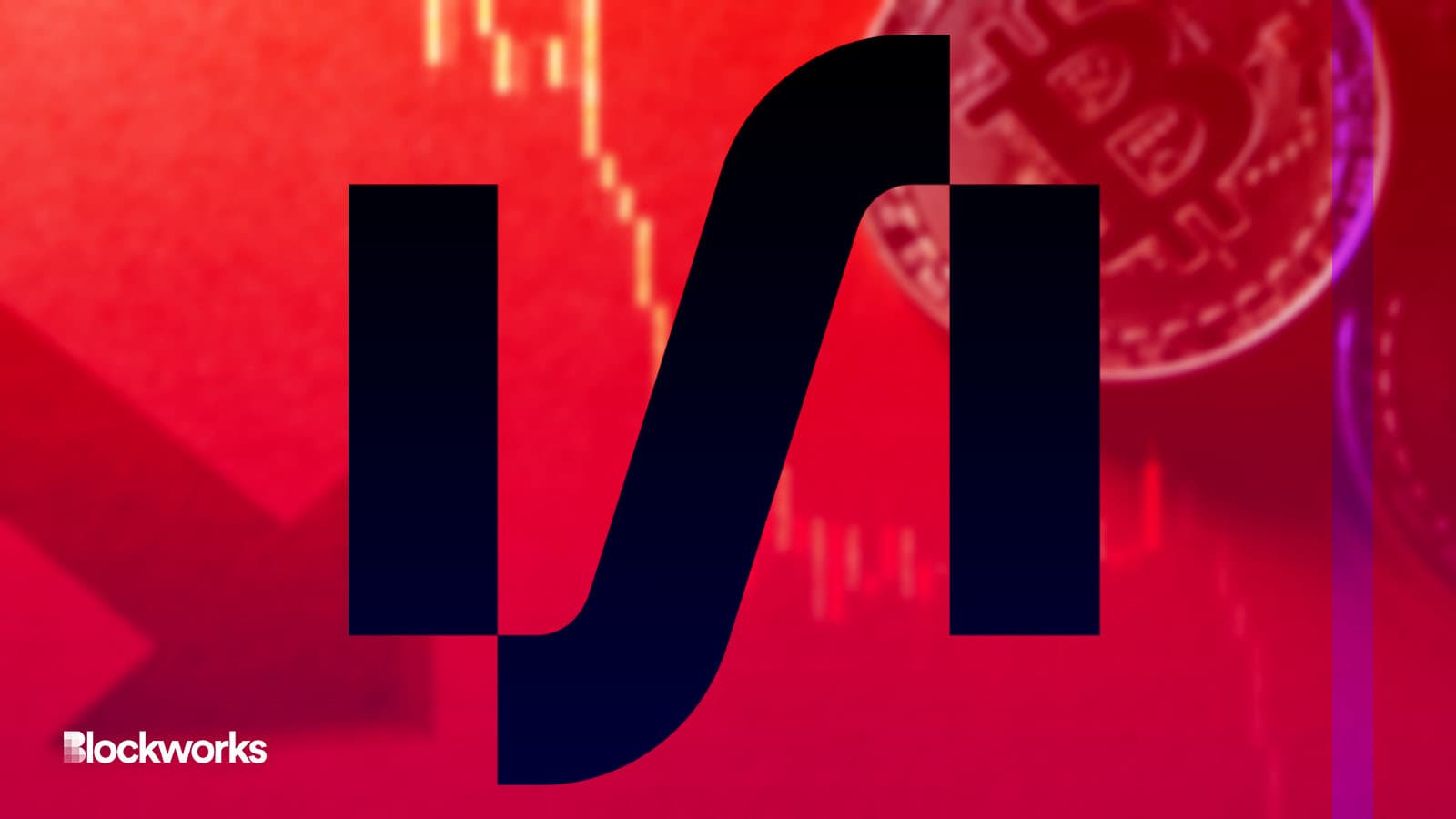Silvergate Received Billions in Home Loan Bank Advances To Weather Withdrawals
The crypto bank’s stock continues to drop, though some analysts are still bullish

Silvergate modified by Blockworks
Silvergate Capital had some assistance in weathering record fourth quarter withdrawals.
The crypto bank booked $8 billion customer withdrawals in the final quarter of 2022. Turns out that a unit of the Federal Home Loan Bank acted as a stopgap for Silvergate, supplying several billion dollars as crypto markets tanked, according to regulatory filings.
The crypto bank said last week it was forced to sell assets at a major loss to plug its massive $8 billion balance sheet hole. The Federal Home Bank started in the 1930s as a government-backed housing initiative. Its 11 US regional banks are now backed by private capital — and supply lines of finance to troubled crypto companies.
American Banker reported that Silvergate acquired capital from the Federal Home Loan Bank of San Francisco during the fourth quarter.
Silvergate held $4.3 billion of short-term Federal Home Loan Bank advances, as of Dec. 31, according to a Jan. 5 company filing.
Silvergate supplied its own securities as collateral, per the filings. A spokesperson declined to comment.
Members of the Federal Home Loan Bank of San Francisco include commercial banks, credit unions, industrial loan companies, savings institutions and insurance companies based in Arizona, California and Nevada. And Silvergate, per American Banker.
The organization is able to raise funds in the global capital markets “at favorable rates and terms,” according to its website, to supply relatively low-cost loans to its members.
Karen Petrou, a managing partner at Federal Financial Analytics, told American Banker that the housing mission of the collection of banks “is apparently long gone.”
The Federal Housing Finance Agency said in August it was set to review the Federal Home Loan Bank System after former Federal Reserve Gov. Daniel Tarullo called the system “irrelevant” in housing finance.
A spokesperson for the Federal Home Loan Bank of San Francisco did not immediately return a request for comment.
State of the crypto bank
Silvergate’s stock was down about 4% by early afternoon Wednesday in New York — marking its latest decline: The stock is down about 43% in the past month and more than 90% from a year ago.
The company faces allegations of “aiding and abetting a multibillion-dollar fraudulent scheme” orchestrated by Sam Bankman-Fried, the founder of the now-insolvent FTX, according to a complaint filed Monday in the US Southern District of California.
The class-action suit alleges that Silvergate held the accounts of both FTX and Bankman-Fried’s trading firm, Alameda Research, adding that it knew FTX held investor funds and that Alameda engaged in risky trading.
The company “did nothing” when it witnessed billions of dollars of FTX customer funds being wired directly to Alameda and related entities, the complaint claims.
“As a federally regulated bank, we take our compliance and risk management responsibilities very seriously,” a Silvergate spokesperson told Blockworks. “While we don’t comment on pending litigation, we are aware of the lawsuit[s] and intend to defend against them vigorously.”
Ed Groshans, a senior research and policy analyst at Compass Point Research & Trading, said it’s notable that Silvergate did not block redemptions — running contrary to the actions of many of its peers and crypto competitors.
“Silvergate paid out $8 billion of deposits and they’re still standing,” Groshans told Blockworks. “A nefarious financial institution would not be able to sustain those types of withdrawals and be standing if they were doing anything illicit.”
BTIG analyst Mark Palmer reiterated a standing buy rating on Silvergate in a Jan. 5 research note — with the caveat of a massive reduction in price target: from $51 to $21.
The stock traded at about $12 around midday Wednesday.
“Our estimates reflect our expectation that the company’s digital asset customer deposits will rebound from their recent, fear-induced lows as relative stability returns to the space and institutional adoption of crypto gains traction,” Palmer wrote.
Get the news in your inbox. Explore Blockworks newsletters:
- The Breakdown: Decoding crypto and the markets. Daily.
- 0xResearch: Alpha in your inbox. Think like an analyst.






